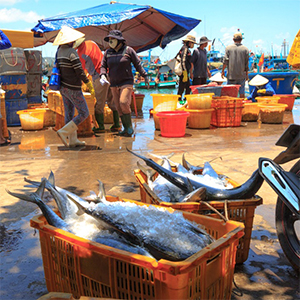
Tags: Daniel Pauly, Dirk Zeller, Faculty, fish, fish stocks, food security, public health, Research, Sea Around Us
The food and nutrient security of billions of people worldwide depend on fish being treated as a domestic public health asset instead of a commodity.
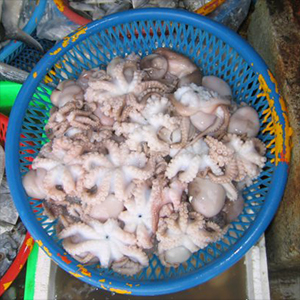
Tags: Daniel Pauly, Deng Palomares, fish, fish stocks, fisheries management, fishing practices, Research, Sea Around Us, Sustainability
Of the fish populations analyzed, 82% were found to be below levels that can produce maximum sustainable yields. Of these, 87 populations were found to be in the "very bad" category, with biomass levels at less than 20% of what is needed to maximize sustainable fishery catches.
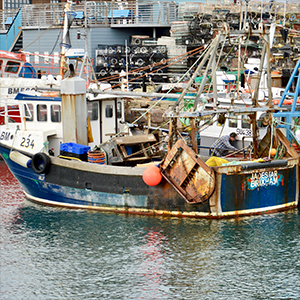
Tags: Daniel Pauly, Faculty, fish stocks, fisheries management, Marine protected areas, Research, Sea Around Us, UK
The researchers propose fishing targets be set to levels in which fishers leave more fish in the water than the minimum required to generate maximum sustainable yields

Tags: Andrés Cisneros-Montemayor, Blue economy, Nereus Program, Nippon Foundation, Ocean Nexus, pollution
Ocean Nexus research at IOF will focus on marine pollution and ocean acidification, and on social and economic measures related to the 'Blue Economy'
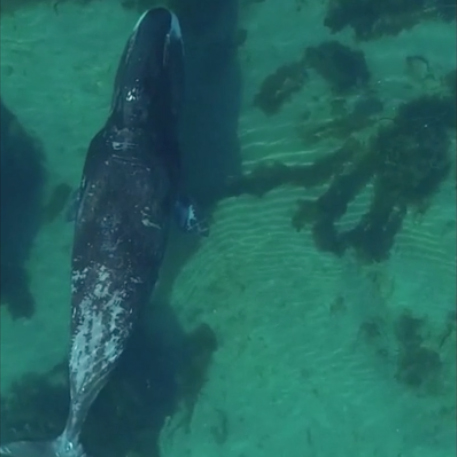
Tags: Andrew Trites, Arctic, IOF postdoctoral fellows, Marine Mammal Research Unit, Sarah Fortune, whales
Satellite telemetry and time-depth recorders are providing new and surprising insights into the secret lives of bowhead whales

Long-term benefits of sea otter recovery could be worth as much as $53 million per year
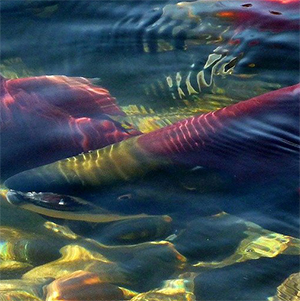
Tags: Brian Hunt, British Columbia, David Costalago, Faculty, food webs, Herring, IOF postdoctoral fellows, Pelagic Ecosystems Lab, plankton, Research, salmon
By determining the availability of high-quality prey for these commercially important groups of fish we can improve estimates of herring and salmon productivity

Tags: Black Lives Matter, Equity and Diversity, Faculty, IOF announcement, IOF postdoctoral fellows, IOF Research Associates, IOF Student Society, IOF students
The Institute for Oceans and Fisheries is proud to stand in solidarity with UBC’s Black Student Union and all people protesting police violence against Black people in Canada and the United States.
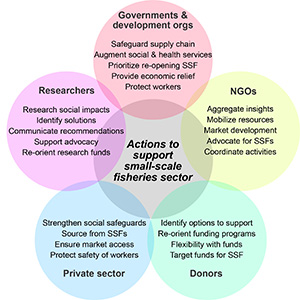
Tags: Aboriginal fisheries, COVID-19, Indigenous fisheries, IOF Research Associates, Nathan Bennett, OceanCanada, pandemic, Research, Small-scale fisheries
Researchers explored the impacts of the COVID-19 crisis on small-scale fisheries in Canada and worldwide, and provided recommendations on how to support them.
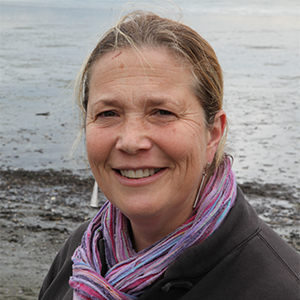
Tags: Amanda Vincent, Awards, bottom trawling, Conservation, fishing gear, fishing practices, IOF announcement, Project Seahorse, seahorses
Amanda Vincent becomes first marine conservationist to win Indianapolis Prize